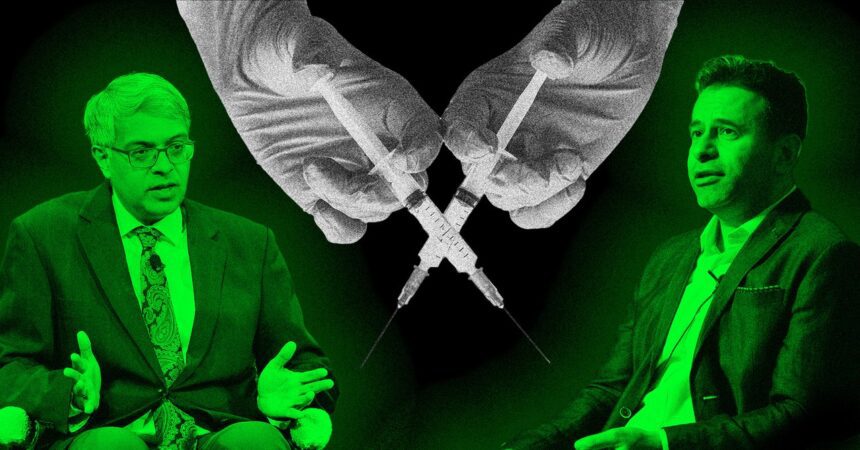Carl Bergstrom, an evolutionary and theoretical biologist, argues that the journal is part of a broader initiative to undermine established scientific consensus. “By creating the impression that there is not a dominant opinion affirming that vaccines and masks are effective in managing the pandemic, you can weaken the perception of scientific consensus, generate doubt, and advance a specific agenda,” he states. He notes that peer-reviewed articles can serve as a shield for politicians making certain choices and can also be utilized in legal contexts.
In a phone conversation on Thursday, Kulldorff mentioned that Bhattacharya and Makary were invited to join the editorial board prior to their nominations by President Trump. “As of now, they are not currently active members of the board,” he clarified. (The journal’s website indicates that Bhattacharya and Makary are “on leave.”) He stressed that there is “no relationship” between the journal and the Trump administration.
Kulldorff told WIRED that the journal aims to provide a platform for open dialogue and academic freedom. “It is crucial that scientists are allowed to publish what they deem to be significant science, and that such work should be open to discussion rather than suppressed,” Kulldorff stated.
Kulldorff, along with Andrew Noymer, an epidemiologist at UC Irvine who has supported the lab leak theory concerning COVID-19’s origin, has been named as editor-in-chief of the journal. Scott Atlas, who was appointed by Trump to the White House Coronavirus Task Force in 2020, also serves on the editorial board. Atlas, a radiologist, has made erroneous claims regarding the efficacy of masks in preventing the spread of coronavirus.
In January, Noymer wrote an editorial endorsing Bhattacharya’s nomination for NIH administrator, commending Bhattacharya for his receptiveness to diverse perspectives. This op-ed was published in RealClearPolitics.
Angela Rasmussen, a virologist and research scientist at the University of Saskatchewan, expresses concern that the journal could be exploited to validate pseudoscientific and anti-public health perspectives. “I don’t believe this will garner them any legitimacy with genuine scientists. However, the public may not discern the difference between the Journal of the Academy of Public Health and the New England Journal of Medicine,” she observes.
Taylor Dotson, a professor at the New Mexico Institute of Mining and Technology who explores the intersection of science and politics, expresses a “legitimate concern” that the journal may serve as a repository for information that supports views favored by individuals within the administration. If confirmed, Bhattacharya and Makary’s superior might be Robert F. Kennedy Jr., who Trump intends to nominate for the Department of Health and Human Services, known for espousing a variety of discredited scientific claims, including the assertion that vaccines are linked to autism and that AIDS is not caused by the HIV virus.
Dotson cautions that the emergence of journals closely aligned with particular political ideologies could exacerbate the politicization of science. “The worst-case scenario is that we end up with journals for those who are populist and anti-establishment and separate journals for those inclined to read NPR and The New York Times.”










